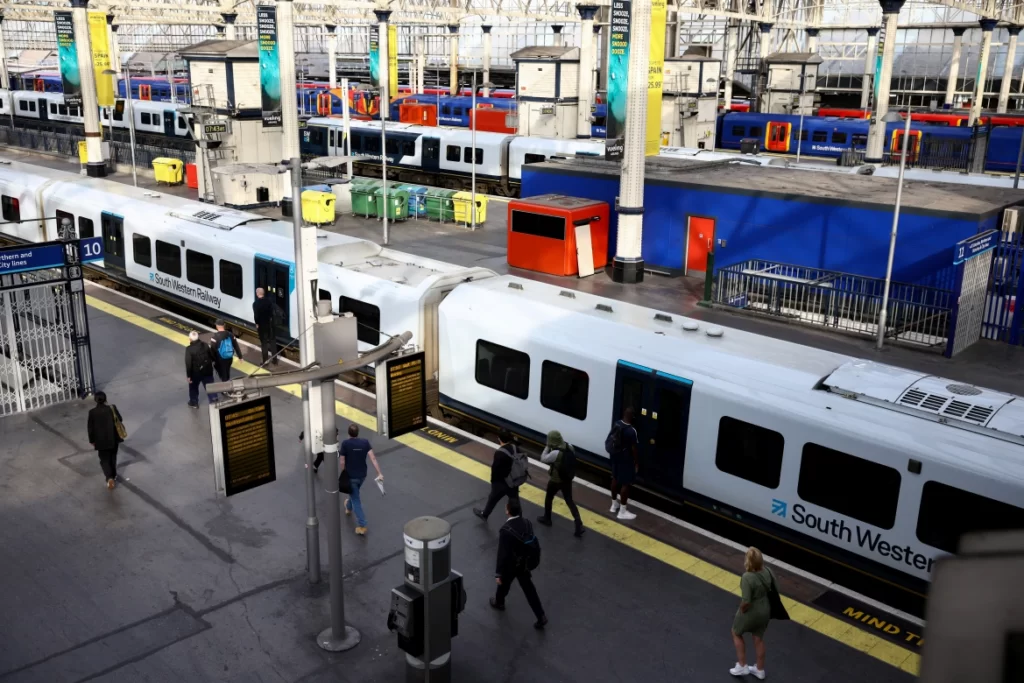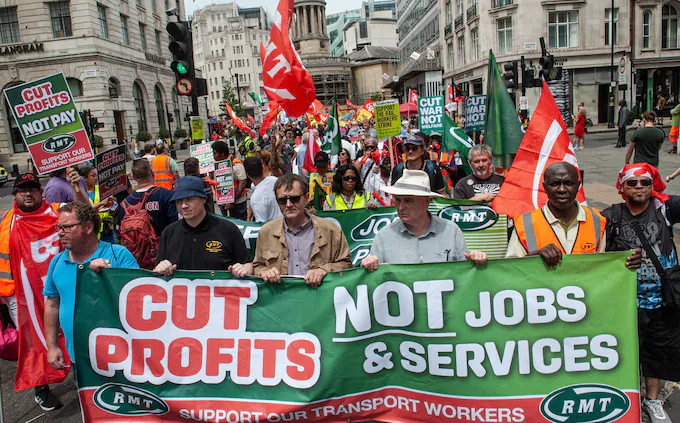UK is under a standstill as currently it has been facing the biggest railway strikes that have happened in the last three decades of British history. The railway strike is a result of a last minute failure of pay between a union and the train companies.
Due to failure of payments, several passengers in England, Wales and Scotland have been dealing with severe disruption in the largest railway strike as they are struggling hard to find other commute alternatives for regular transportation.
On Tuesday, Wednesday and Saturday, around 40,000 staff members have taken to the street for a walkout as a mark of protest against meager pay and zero job security. The current week’s strike is likely to shut down major railway network of UK, bring a complete standstill in the country. The government has anticipated that only 4,500 railway services are expected to run this week.
The underground railway service of London was closed by major proportions as there is a separate strike going on there. Amidst such crisis, the passengers are struggling to find an alternative mode of transportation to get going with their jobs or other tasks.
Also Read: US Senate breaks Gridlock, passes bipartisan breakthrough legislation on gun-safety
The UK Prime Minister Boris Johnson is facing extreme pressure amidst the already prevalent economic crisis going around. Pertaining to the ongoing railway strikes, he has told the media that it will create havoc and bring in coarse impact on businesses as they look to recover after a halt of 2 years due to the global pandemic.
Reiterating more on the matter, Boris Johnson claimed that the unions are “harming the very people they claim to be helping.” He further added, “By going ahead with these rail strikes, they are driving away commuters who ultimately support the jobs of rail workers, whilst also impacting businesses and communities across the country.”

Quite contrary to the PM, the unions call the ongoing strikes “justified” as they can likely mark the beginning of “summer of discontent” as a result of “surging food and fuel prices pushing inflation toward 10 percent.”
Commenting on the matter, the Secretary-general of Rail, Transport and Maritime workers Mick Lynch said on Monday, “Our campaign will run for as long as it needs to run. The dead hand of this Tory government is all over this dispute.”
The Union, showing firm discontent on the government measures, reiterated that employees are offered a mere 2% increment. Some are also lured to accept the possibility of 1% more only if they accept job cuts.
On the other hand, Grant Shapps, the Transport Secretary has said that the government would force train operators to return back to work – if not completely, at least partially – to run minimum service during the ongoing strike. By doing this, he said, the government will replace the current staffs who have decided to walk off for the strikes.
Reiterating the same, he said. “What we will do in the future is we’ll make sure we’ve put in some additional protections in place for the traveling public, for example through minimal service levels.”
Also Read: Sidhu Moose Wala’s new release after death, fans express overwhelming response
He added again, “That would mean on a day like today, a certain level of service would still have to be run and through changes to allow for transferable workers, that’s a much quicker change we could take.”
In light of the current railway strike, numerous airports have scrapped flights for reducing delay. This hints at another turmoil – UK under both railway and airline strike at the same period.

